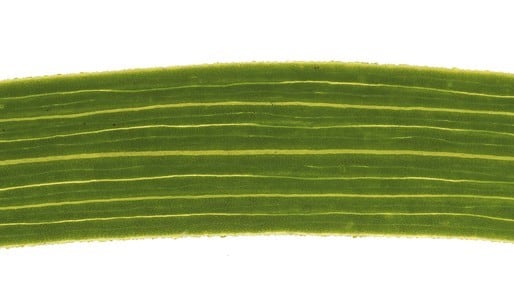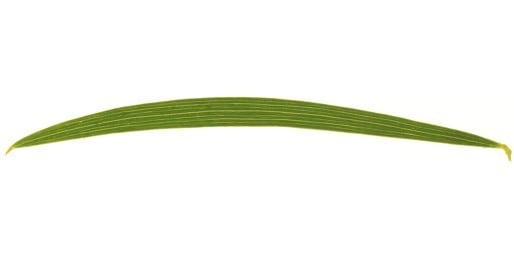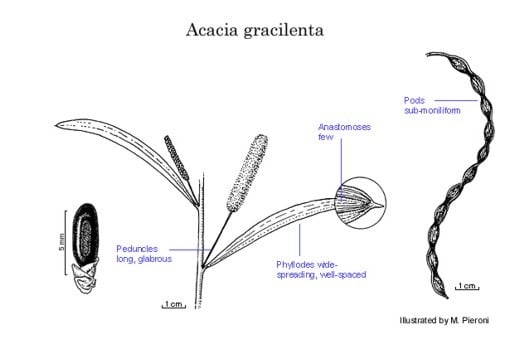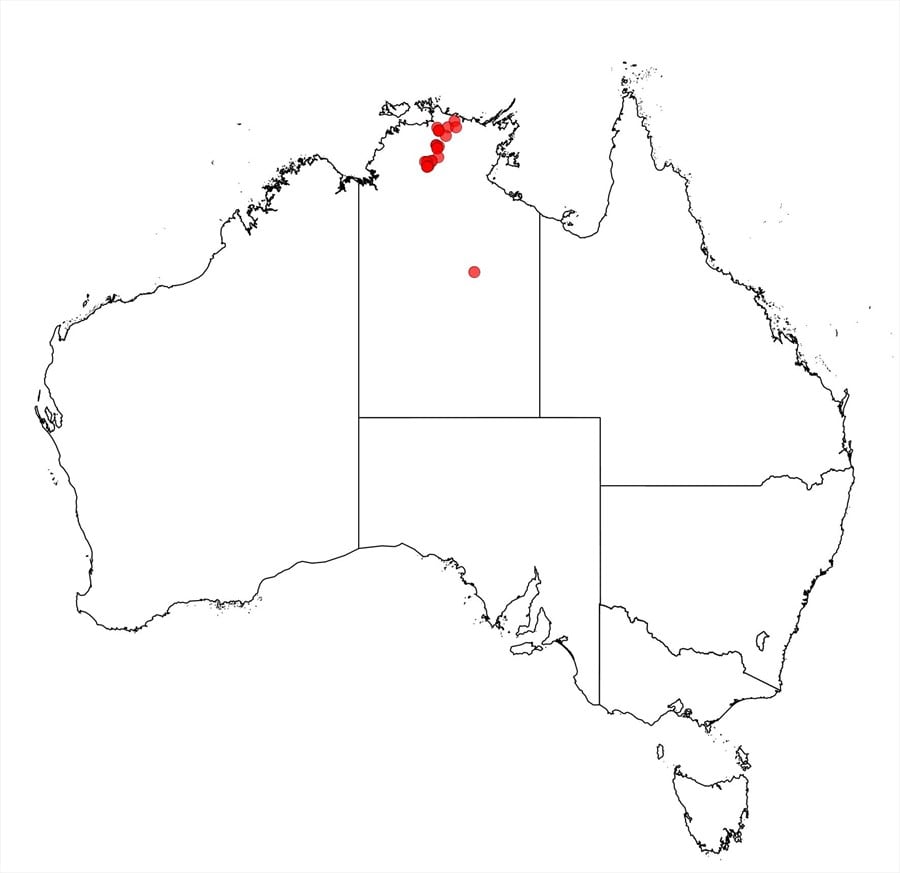Acacia gracilenta Tindale & Kodela
WATTLE
Acacias of Australia
Family
Fabaceae
Distribution
Occurs in the N.T. in Arnhem Land, Kakadu Natl Park, and Katherine Gorge Natl Park.
Description
Normally spindly shrub to 3 m high, resinous and viscid. Bark greyish or light brown. Branchlets terete, pale to bright green, glabrous or occasionally sparsely ±appressed puberulous. Phyllodes single, occasionally a few paired, ±linear to very narrowly elliptic, sometimes widest c. 1/3 from apex, mucronate by a short and often delicate point, flat, straight to shallowly recurved, widely spreading, (2–) 4–6 (–10.2) cm long, (1–) 2–5 (–6.5) mm wide, chartaceous, bright green, glabrous or ciliolate, with prominent midnerve, usually with 2 subprominent nerves, with 2–7 nerves per mm, sparsely anastomosing; glands basal and apical, inconspicuous. Peduncles 13–30 mm long, glabrous or occasionally sparsely appressed puberulous. Spikes single, 2–5.5 cm long, 3.5–6.5 mm wide, slightly interrupted at first, golden. Flowers 5‑merous; calyx 0.2–0.4 mm long, almost free, with lobe apices obtuse or ±spathulate; corolla 0.9–1.5 mm long, dissected by 1/3–1/2, glabrous. Pods ±moniliform, curved, openly coiled following dehiscence, 2–12 cm long, 2.5–4 mm wide, with longitudinal nerves and minor nerves anastomosing, glabrous. Seeds longitudinal, areole closed, depressed; funicle folded c. 5 times.
Phenology
Flowers and fruits Apr., May & Aug.
Habitat
Grows in sandy soils on plateaux and in gorges; often on slopes near rivers and creeks.
Specimens
N.T.: upper Birdie Ck area, Kakadu Natl Park, A.V.Slee & L.A.Craven 2512 (CANB, DNA?, NSW); Second Spring, Seventeen Mile Valley, Katherine [Gorge] Natl Park, M.D.Tindale 6038 & C.Dunlop (CANB, K, NSW, UNSW).
Notes
The pods of A. gracilenta are linear and constricted as in A. linarioides which also occurs in Arnhem Land, Kakadu Natl Park and the Pine Creek region. However, the latter species has more crowded, normally smaller and erect phyllodes, shorter peduncles and free, claw-like sepals.
FOA Reference
Data derived from Flora of Australia Volumes 11A (2001), 11B (2001) and 12 (1998), products of ABRS, ©Commonwealth of Australia
Author
Edited by B.R.Maslin
M.D.Tindale, P.G.Kodela
This identification key and fact sheets are available as a mobile application:
URL: https://apps.lucidcentral.org/wattle/
© Copyright 2018. All rights reserved.









